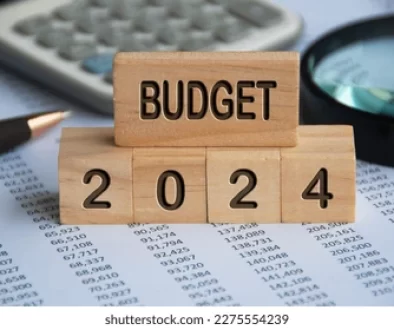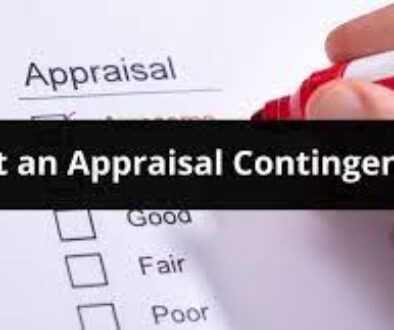Discount Points
Discount points
When you buy a house, you pay interest on your home loan. Your lender will determine your interest rate based on your financial situation. Your interest rate will likely be low if you have strong credit, a steady income and minimal debts. If your finances aren’t ideal, you may end up with a higher rate.
Luckily, you have options that can lower your interest rate before you close on a loan. Mortgage points allow you to lock in a lower interest rate during the home buying process and pay less on your loan over time.Use our handy guide to learn how they’re calculated and gauge whether buying mortgage points makes sense for your situation.
What Are Mortgage Points?
A mortgage point – sometimes called a discount point – is a one-time fee you pay to lower the interest rate on your home purchase or refinance. One discount point costs 1% of your total home loan amount. For example, if you take out a mortgage for $100,000, one point will cost $1,000. When you purchase a point, you prepay the interest for a smaller monthly payment.
Mortgage Discount Points Vs. Mortgage Origination Points
You may have heard the term “mortgage origination points” before. It refers to the you pay your origination fees to cover the cost of processing and reviewing your mortgage loan application. Depending on your credit score and the size of your down payment, sometimes you can negotiate these fees with your loan officer.
Unlike discount points, mortgage origination points don’t lower your interest rate. And origination points aren’t optional. You must pay this one-time upfront fee at closing.
How Do Mortgage Points Work?
Each discount point you buy reduces your interest rate by a set percentage point. The discount varies by lender, but you can generally expect a 0.25% interest rate reduction for each point purchased, though most mortgage lenders cap the number of points you can buy. You can also purchase points in increments of eighths of a percent, or 0.125%.
Points are paid at closing. Your lender will calculate the cost of any points you purchased and add them to your other closing costs.Let’s run through an example. Let’s say you take out a 30 years fixed rate mortgage for $200,000 with a 5.125% interest rate. Your lender offers you an interest rate of 4.75% if you purchase 1.75 mortgage points. On a $200,000 loan, each point will cost $2,000. For your loan, 1.75 points will cost $3,500. If you don’t buy the mortgage points, your interest rate will stay at 5.125%.Discount points work similarly for adjustable rate mortgage loans as they do with fixed-rate loans. The only difference is that the interest on your ARM will adjust after 5 or 7 years, making it crucial to know how long it will take to make buying points on a mortgage worth the investment.
The Benefits Of Mortgage Points
Borrowers buy points to lower their interest rates, but there are other advantages to consider.
You May Save Serious Money
Points can increase your closing costs by thousands of dollars. But it’s a high upfront cost that may be worth it if you stay in the home long enough to see savings from the reduced interest rate. Paying extra money upfront could mean tens of thousands of dollars in savings over your mortgage.
You May Lock In A Lower Monthly Payment
Mortgage points can lower your monthly payment by decreasing your interest rate, which means you pay less in interest each month. The less interest you pay, the smaller your monthly payment will be.
You May Save On Taxes
You may be able to deduct the cost of the points from your taxes because mortgage interest is tax-deductible, and discount points are considered prepaid mortgage interest.
Should You Buy Mortgage Points?
Lower interest rates are always great, but mortgage points may not be the best option for all home buyers. Here are some things to consider when deciding whether to buy points.
When To Buy Points On A Mortgage
Buying mortgage points may make sense if the following situations apply:
- You want to stay in your home for a long time. The longer you stay in your home, the more it makes sense to invest in points and lower your mortgage rate. If you keep the same mortgage for the long haul, mortgage points can reduce the overall cost of the loan.
- You know what your breakeven point is. Do the math to calculate when the upfront cost of the points will be eclipsed by the savings on your lower monthly mortgage payments. If your timing is right and you don’t plan on moving or refinancing your loan before you reach the breakeven point, you should consider buying points.
How To Calculate Your Break Even Point
Let’s run through another quick example using our numbers from earlier.
If you have a $200,000 loan with a 5.125% interest rate and buy 1.75 points for $3,500, you’ll bring the loan’s interest rate down to 4.75% and save $46 a month.
If you divide the upfront cost of the points by your monthly savings, you’ll find that your breakeven point is about 76 months ($3,500 ∕ $46 = 76.01), which is about 6 years and 3 months. If you plan to stay in your house longer than that and pay off your loan according to the loan’s original schedule, it makes sense to buy the points because you can take advantage of their long-term savings.
When Not To Buy Points On A Mortgage
Mortgage points don’t make sense for every homeowner. Here are some reasons not to buy points:
You don’t plan to stay in your home for long. If you plan to sell in a few years, you won’t get much benefit from discount points. It takes a few years for the money you save on interest to offset the cost of the points. If you know you’ll be moving soon, mortgage points may not be worth the expense.
You plan to pay extra on your mortgage payments. Mortgage points only benefit you if you pay your home loan for a long time. If you can pay off your loan quickly, you might not save much money.
You don’t have money to buy points. It’s not worth emptying your savings account to save on interest down the line. And buying points isn’t your only option to save on interest. You can also save on interest by paying extra toward your loan’s principal balance.
Your down payment would suffer. Usually, it’s better to apply any extra cash to your down payment than to points. A larger down payment may result in a lower interest rate, cheaper mortgage insurance (or no mortgage insurance) or lower monthly mortgage payments. Mortgage discount points don’t have all these benefits.
You plan to refinance in the near future. Buying mortgage points may seem like a good idea when interest rates are high. But if you plan on refinancing your mortgage soon, you’ll pay origination and discount points for the new loan, which means you end up paying for the same things twice.
Mortgage Point FAQs
Deciding whether mortgage points are worth the investment depends on your situation. Learn more about making this upfront investment with our answers to commonly asked questions.
Should I buy more discount points if mortgage interest rates keep increasing?
Over the past few years, mortgage rates have steadily climbed from their once-historic lows – making discount points appear more attractive. The best way to determine whether purchasing points is right for you is by calculating your break even point.
If you aren’t in the home past the breakeven point or plan on refinancing soon, you may be better off making a larger down payment or managing a shorter repayment period.
Do mortgage points change my annual percentage rate?
A mortgage’s annual percentage rate includes the loan’s interest rate and the fees you pay. If you purchase mortgage points to lower your interest rate, you’ll lower your APR.




